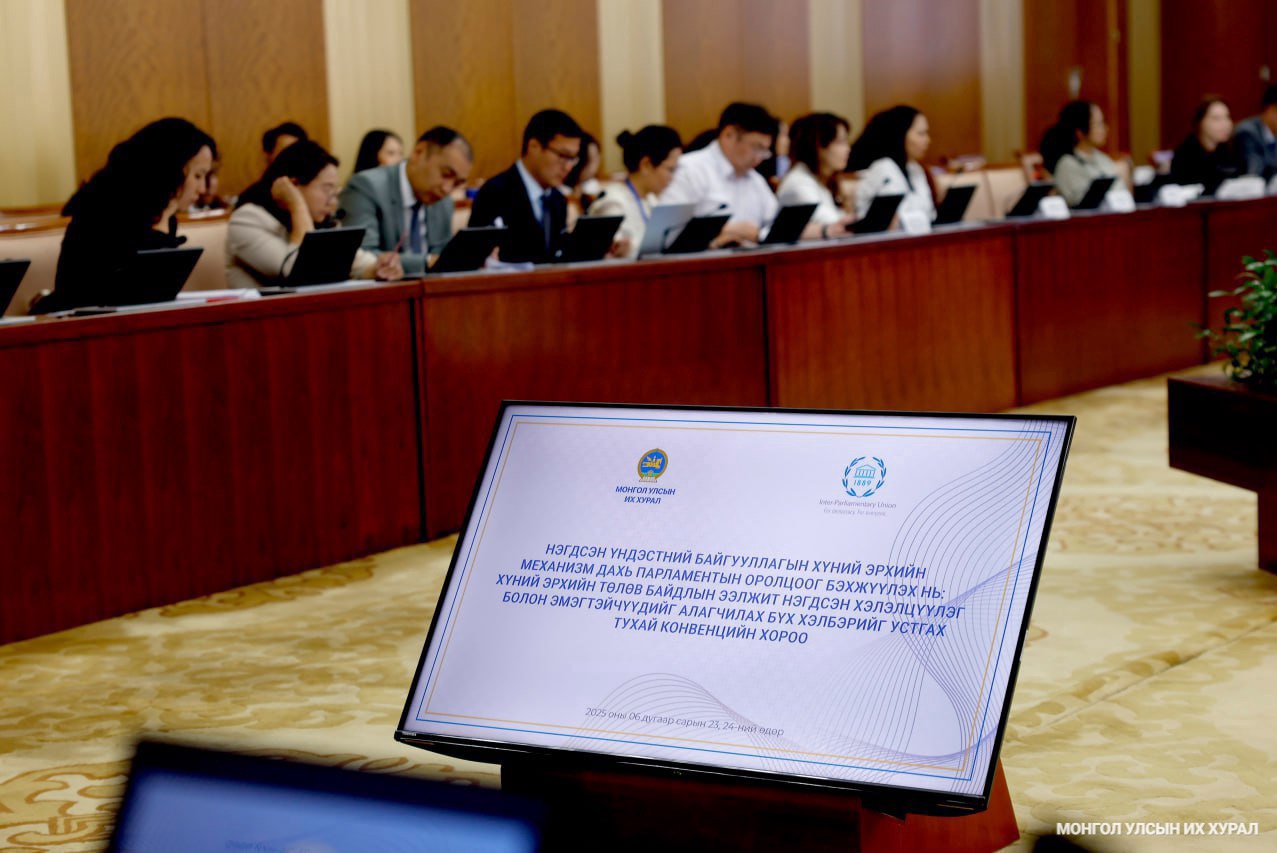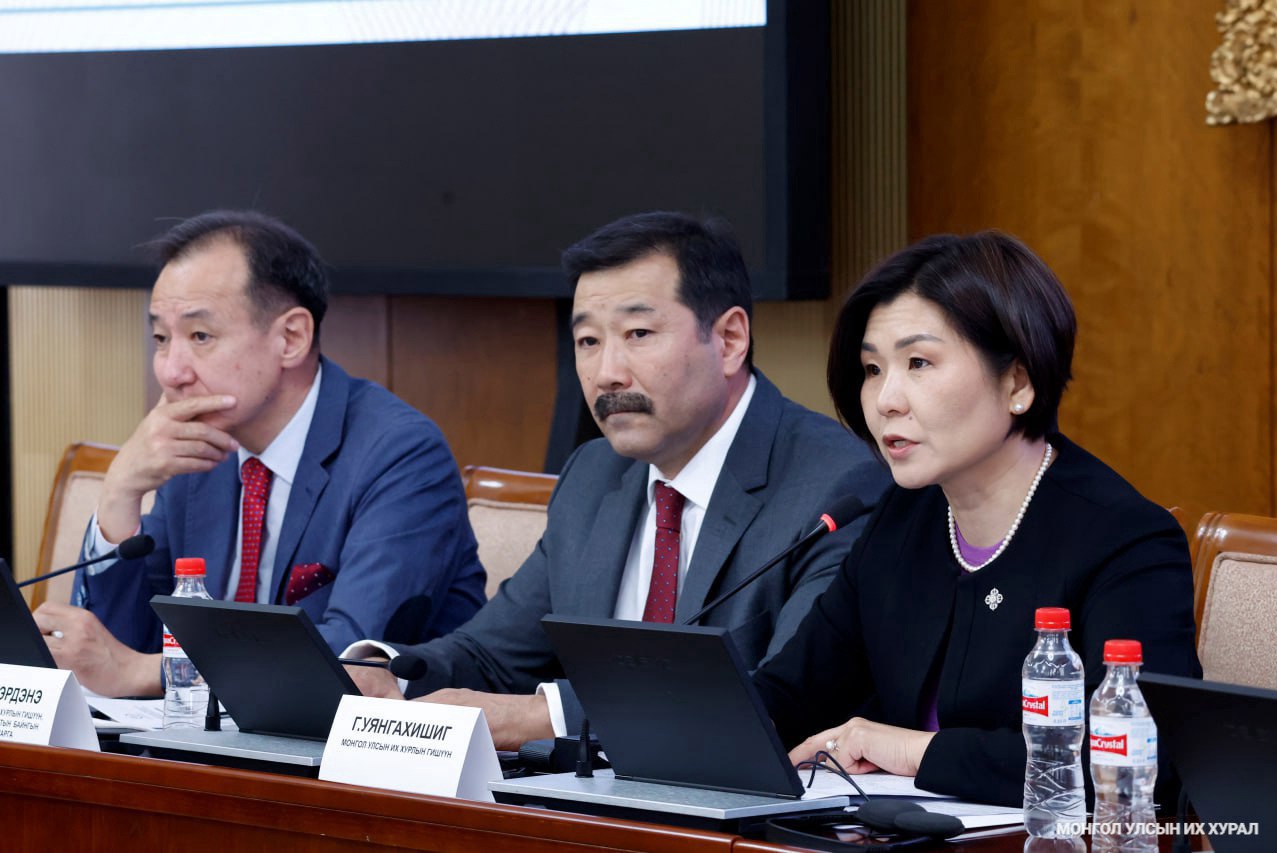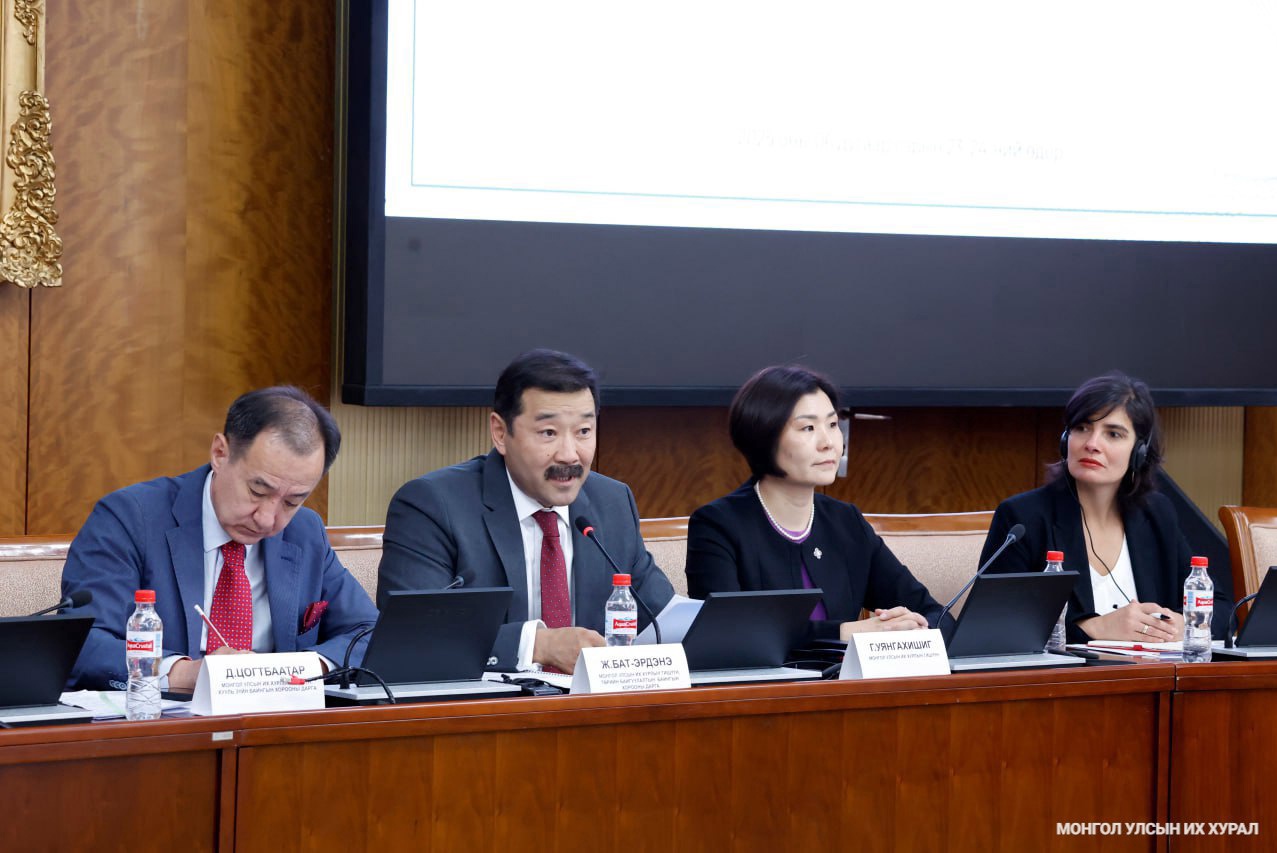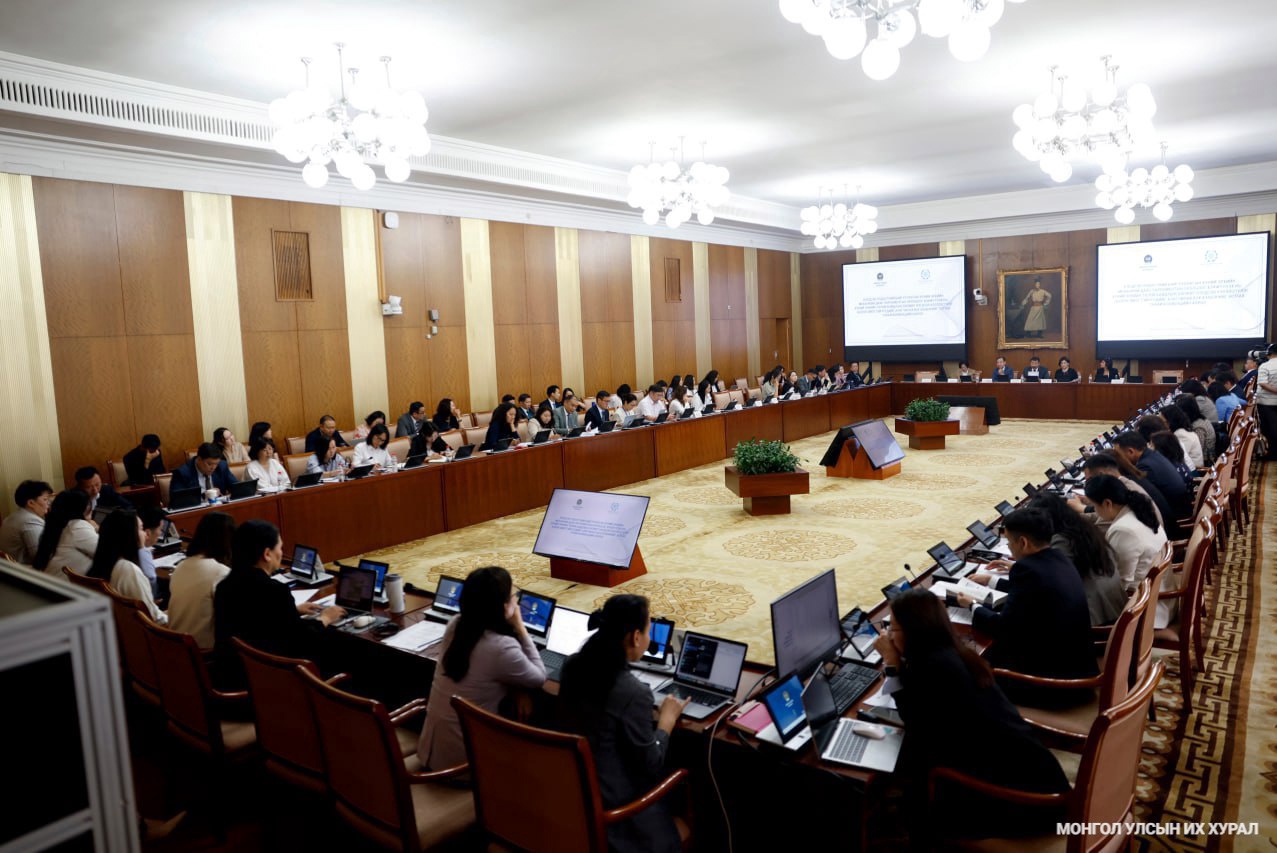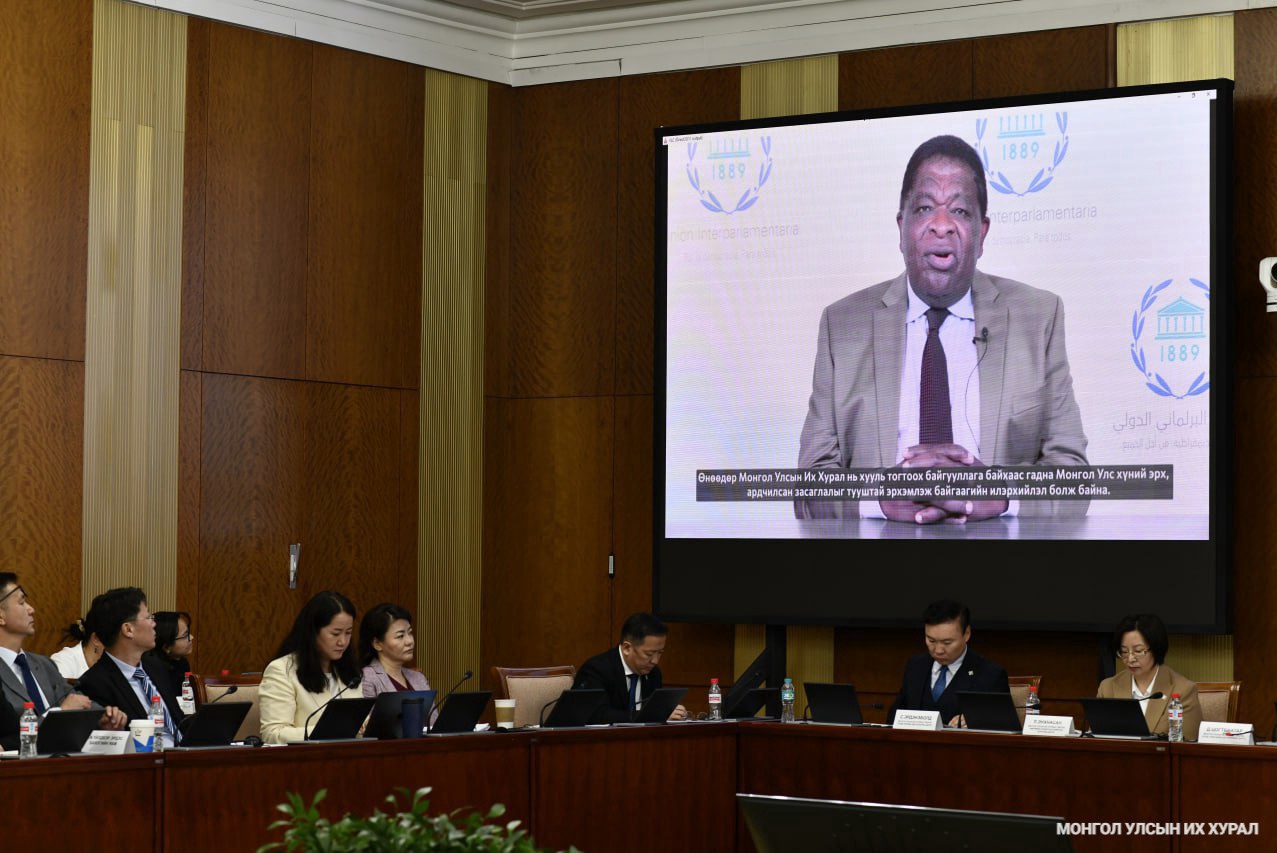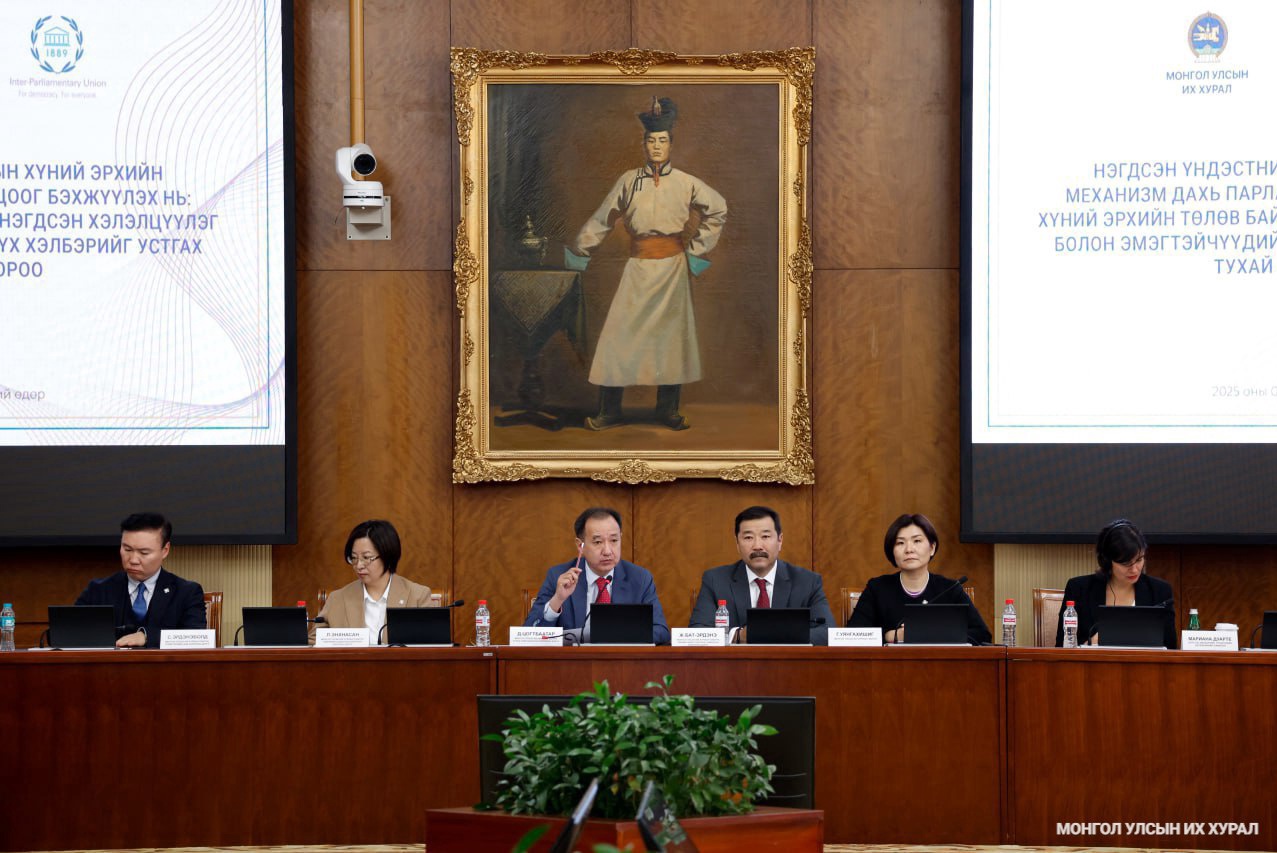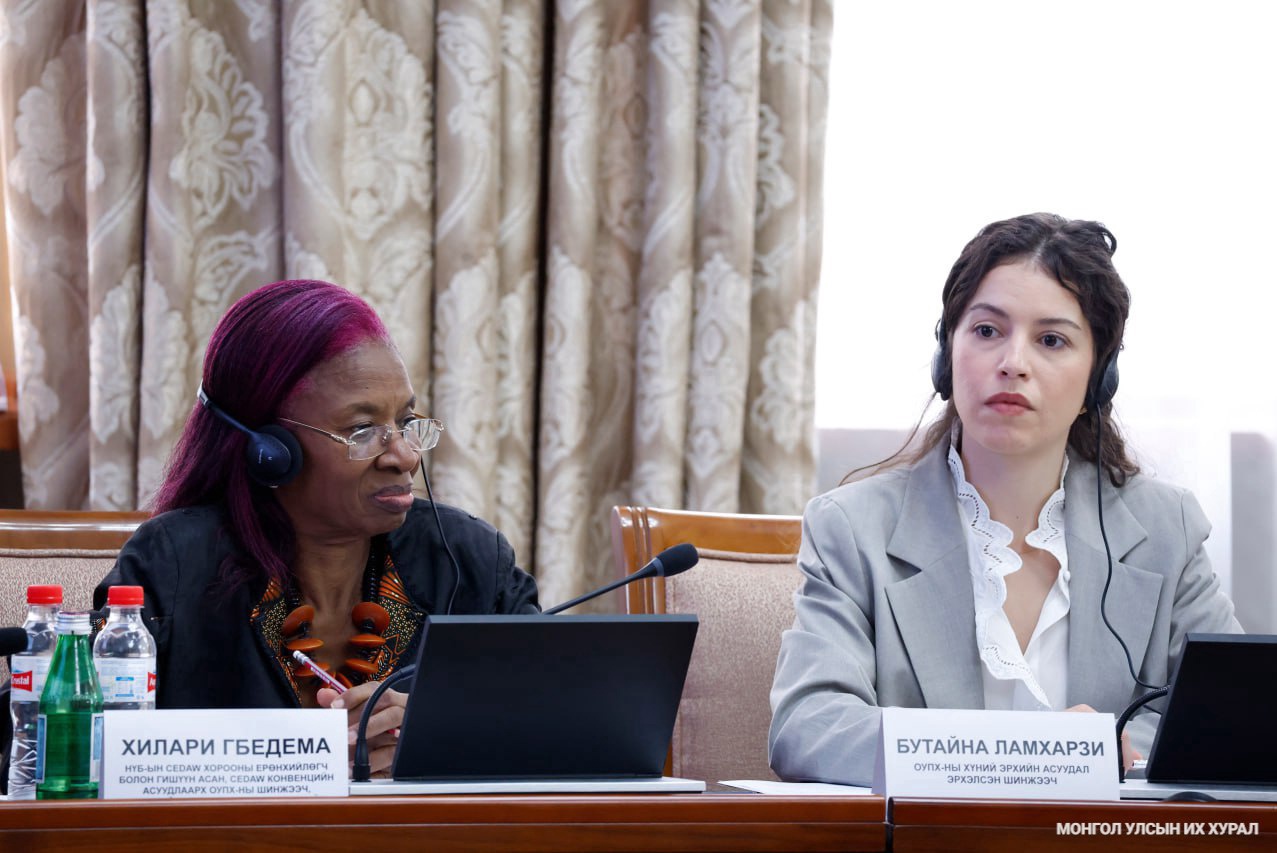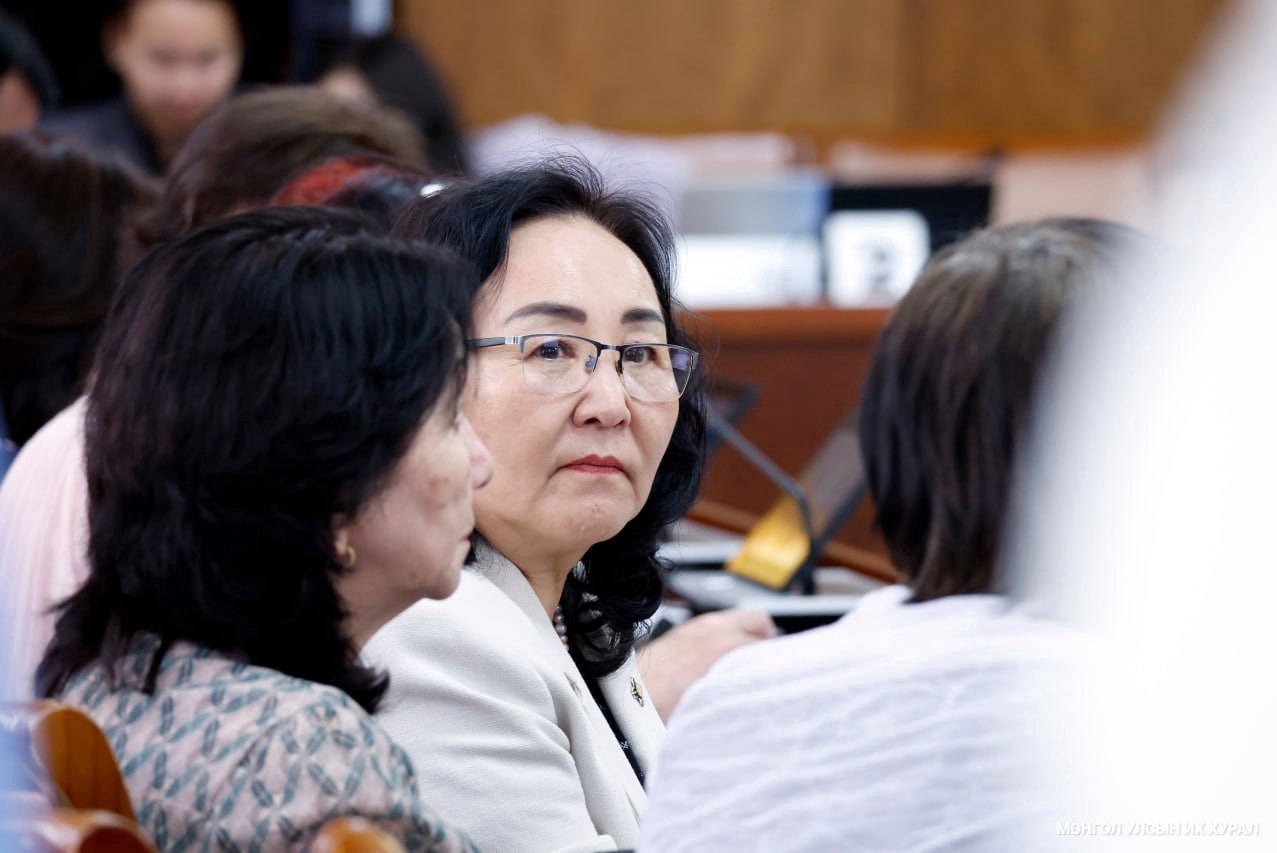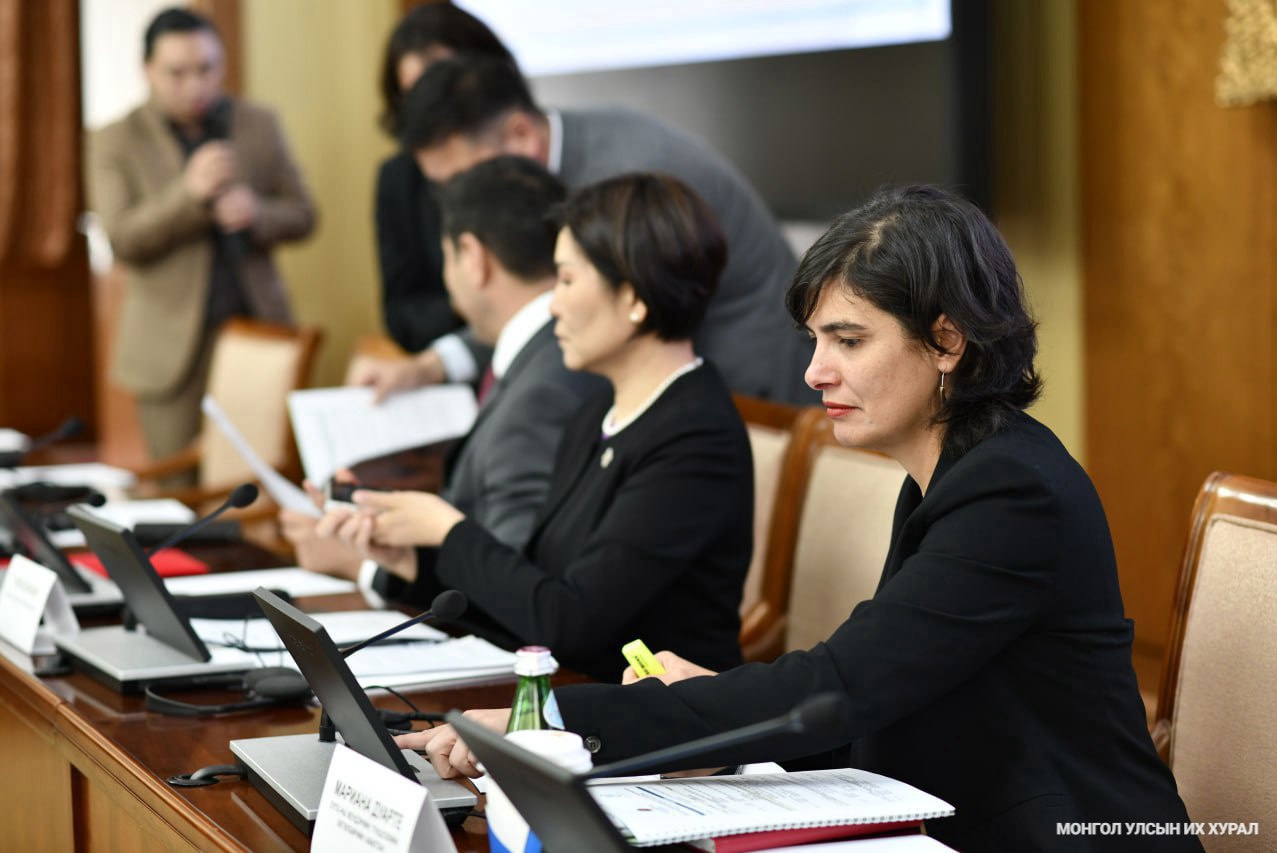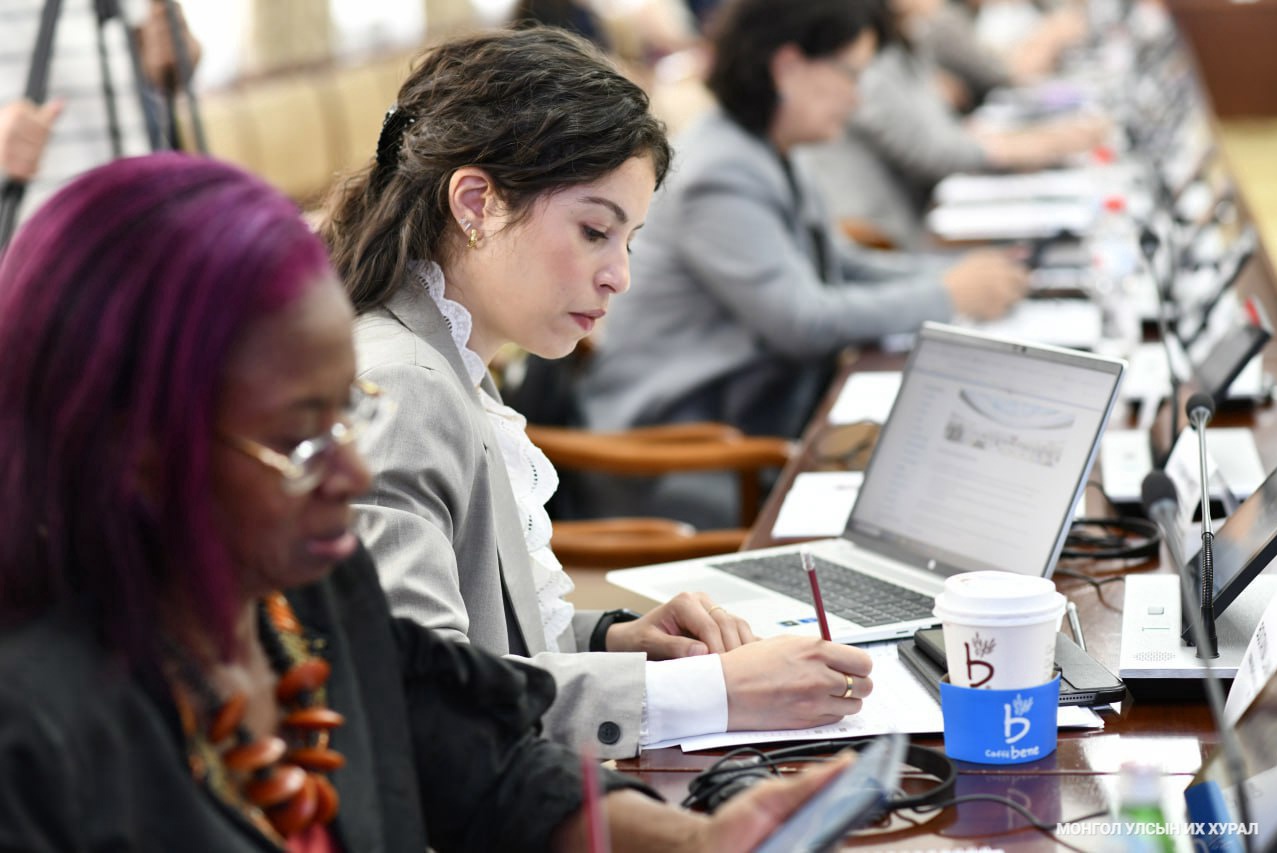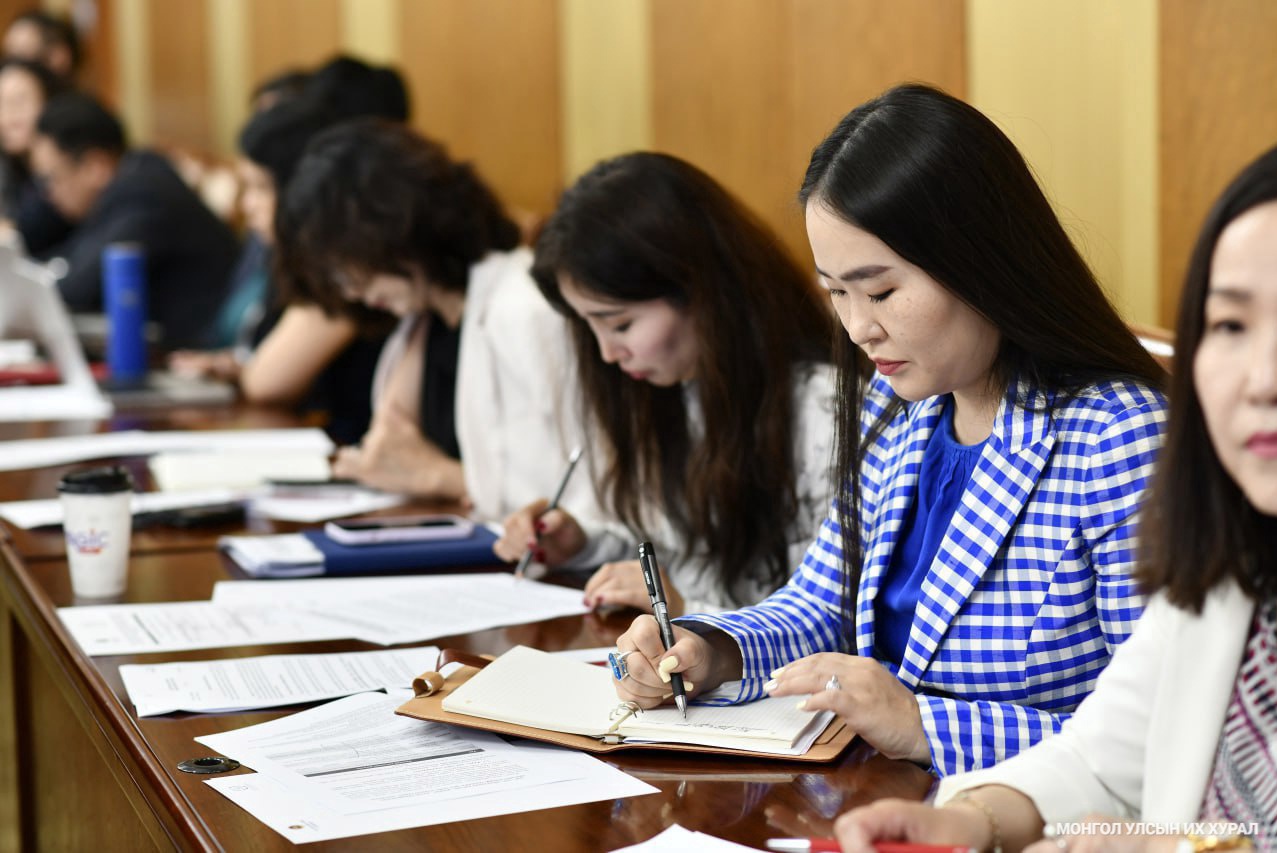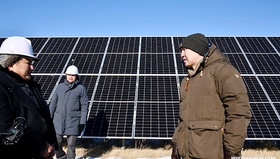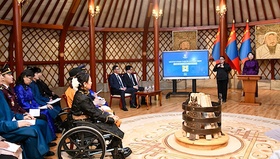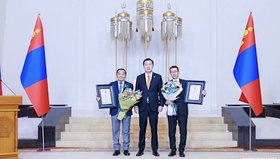A meeting-discussion on strengthening parliamentary engagement in United Nations (UN) human rights mechanisms, co-organized by the State Great Hural (Parliament) of Mongolia and the Inter-Parliamentary Union (IPU), commenced today (June 23, 2025) at the State Palace.
This event aims to exchange experiences and discuss international human rights treaties and mechanisms through the lens of cooperation and shared goals in the areas of human rights and gender equality.
MP G. Uyangakhishig, who served as moderator, emphasized that the meeting, included in the 2024–2025 action plan for implementing the Memorandum of Understanding signed between the two parties in 2022, focuses on enhancing parliamentary involvement in the UN Human Rights Council, particularly the Universal Periodic Review (UPR) and the Committee on the Elimination of Discrimination against Women (CEDAW).
She noted that the meeting follows an online discussion held in March 2025 on the UPR process and that the current session is intended to provide a general overview of the mechanism and its significance. She also highlighted that the goal is to increase the State Great Hural's participation in preparing Mongolia's national report to the UN and ensure active follow-up and implementation of UPR recommendations.
The discussion was opened by Chair of the Standing Committee on State Structure J. Bat-Erdene and Chair of the Standing Committee on Legal Affairs D. Tsogtbaatar, with welcoming remarks from IPU Secretary General Martin Chungong.
Chair J. Bat-Erdene underlined the importance of increasing women's participation in decision-making, noting that this contributes significantly to promoting gender equality and women’s leadership across all levels of society.
The State Great Hural and IPU signed a Memorandum of Understanding in 2022, followed by a human rights and gender sensitivity assessment of the Parliament and its Secretariat in 2023. This assessment produced 36 recommendations on human rights, 64 on gender, totaling 100 proposed measures, which were submitted to Parliament in the first quarter of 2024. This marked the first time the State Great Hural had conducted a self-assessment on human rights.
He noted that based on these recommendations, Parliament has already begun implementing various legislative and policy measures.
For example, in 2024 the State Great Hural adopted a resolution titled "On Certain Measures to Improve the Implementation of Multilateral International Treaties to Which Mongolia is a Party" to enhance parliamentary oversight. Furthermore, the revised Law on Parliamentary Procedure and the new Law on Parliamentary Oversight, both passed in 2024, include provisions for regular parliamentary discussions on the Government's biennial reports on the implementation of international treaties (as per Article 8.1.1 of the Law on International Treaties) and the periodic reports on the implementation of the CEDAW Convention.
Chair D. Tsogtbaatar stated that co-hosting this meeting with the IPU presents a valuable opportunity to consider Parliament’s human rights obligations more deeply and practically, while sharing good practices and methodologies among countries.
He noted that the two-day meeting covers three main areas:
1. Raising awareness and enhancing participation in the UPR process. As Mongolia is preparing to present its national report to the UPR in November 2025, strengthening parliamentary engagement in this process marks a new phase.
2. Ensuring parliamentary oversight of the implementation of the CEDAW Convention. Although Mongolia ratified CEDAW in 1981 and submitted its most recent report in 2022, parliamentary involvement has been limited. There is now a need to strengthen oversight mechanisms, accountability, and policy coherence.
3. Implementing recommendations from the Parliament’s 2023 self-assessment. The Parliament has been committed to reflecting UN and Human Rights Council recommendations in its legislative work and monitoring implementation. The Legal Affairs Committee, in cooperation with international partners, conducted a gender-sensitive parliamentary evaluation, which laid the groundwork for a more inclusive legislative environment. This evaluation offered numerous recommendations for improving capacity and participation in human rights and gender equality. It served as a mirror to the internal structure of Parliament, and now the goal is to transform those reflections into concrete action.
He added that the Legal Affairs Committee successfully organized a series of virtual discussions under the UPR framework to monitor the implementation of recommendations provided by member states. The overall goal of Parliament is to promote human rights through legislation, policy, and budgeting; institutionalize gender equality and women’s participation; and ensure accountability for implementing international commitments.
In his remarks, IPU Secretary General Martin Chungong noted that Mongolia, in its three-decade democratic journey, has built institutions that reflect the will of the people and values inclusive, accountable, and human rights-based governance. He acknowledged that the Parliament today symbolizes Mongolia’s dedication to democratic governance and noted that since 2024, one in every four MPs is a woman. He expressed optimism about Mongolia’s plans to further increase this representation.
He highlighted Mongolia’s 2023 self-assessment on human rights and gender sensitivity as a major step forward, making the State Great Hural the first parliament in the world to apply the IPU’s new self-assessment methodology on human rights. This was implemented alongside the IPU's gender-sensitive parliamentary assessment framework. By critically reviewing its own structure and operations, the Parliament demonstrated a commitment to high standards of equality and inclusivity. Building on this, it successfully hosted a seminar on the UPR in early 2025.
This current meeting continues that foundation, aiming to define how the Parliament of Mongolia can engage more actively in the UPR and CEDAW processes.
He reiterated that parliamentary involvement is essential in UN mechanisms like the UPR and CEDAW, as parliaments serve as the link between international commitments and domestic implementation.
The UPR allows MPs to assess national progress on human rights, propose policy reforms, and monitor government implementation of recommendations. Meanwhile, the CEDAW mechanism provides a vital structure to ensure gender equality and eliminate all forms of discrimination against women. In both, parliamentary leadership and active participation are key to fostering transparency, accountability, and inclusive governance.
Mr. Martin Chungong emphasized the need for Mongolia to ensure the implementation of the Convention on the Elimination of All Forms of Discrimination against Women (CEDAW) and to prepare its next periodic report due in 2026. He highlighted that the concluding observations of the CEDAW Committee in 2022 clearly call for decisive action to eliminate gender-based violence, increase women’s political participation, and ensure equality in education and employment.
Therefore, let us use this opportunity to turn our commitments into concrete actions and plans. The Inter-Parliamentary Union (IPU) will continue to firmly support and work in partnership with the State Great Hural in its leadership for human rights, equality, and justice.

 Eng
Eng  Монгол
Монгол